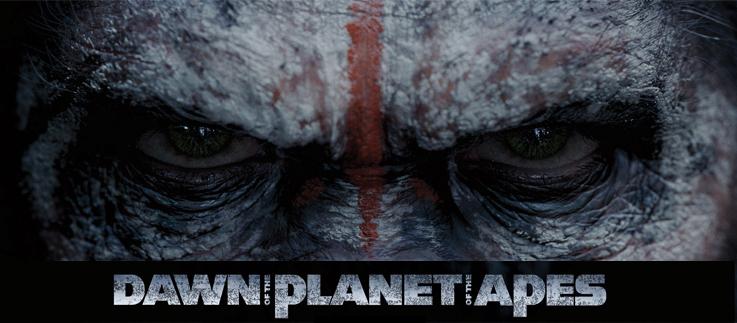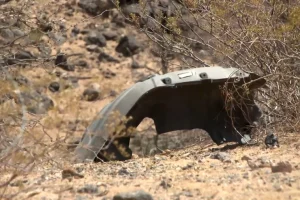“Dawn of the Planet of the Apes:” A wonderful nod to the franchises history
July 13, 2014
A few months ago I made an entry into my column “Out of My Element” featuring the 1968 classic movie, “The Planet of the Apes.” In it, I described in great detail my love of the “Planet of the Apes” series (to read it, click here).
The latest entry into the film series, “Dawn of the Planet of the Apes” released over this past weekend is, as I’m very excited to report, another great addition to the beloved simian world.
Building upon 2011’s “Rise of The Planet of the Apes,” “Dawn” takes place years after its predecessor. After an outbreak of the “simian flu,” a fatal disease that wipes out an unspecified, but seemingly vast majority of the worlds populations, a group of genetically immune humans attempt to survive and thrive in the now desolate world surrounding them. Unbeknownst to the humans however, a colony of apes, ever increasing in intelligence and strength, is growing mere miles from the area of San Francisco the humans are attempting to rebuild.
The humans don’t know the apes are there, and as far as the apes know, humans went extinct ten years prior to the events in this movie. That is of course until a man named Malcolm (Jason Clarke) unknowingly brings a small team of people to the ape colony, in hopes to repair an abandoned hydroelectric dam and restore power to their city.
Introductions start off shaky however, as one of the humans’ shoots a chimpanzee. Caesar (Andy Serkis), the ape from the first movie, who is now the leader of the ape colony, bans the humans from ever coming back to their setelment, with a terrifying “GO.”
Upon returning to San Francisco, Malcolm and his team report what they saw to Dreyfus (Gary Oldman), a man who is very clearly in charge. Dreyfus decides that the power provided from the dam is more than valuable enough to go to war for, and begins stocking the city with an abundance of weapons and ammunition. Malcolm however, fearful of the apes power, attempts to diplomatically change the apes minds, and returns to the colony to speak with Caesar. Will war flare between the two budding civilizations, or will diplomatic peace conqueror all?
I really loved this movie. That may be oversimplifying it, but it’s true. As far as sequels go, this is another one you could say eclipses its predecessor. When “Rise” premiered in 2011, it was a testament to how far motion capture technology had come. “Dawn” is just more of the same in that regard. Andy Serkis, like he always does, gave an astounding performance. The skill, concentration, and dedication it takes to play a completely different species, and play it convincingly, is something no one else has ever been able to master quite like he has.
Back in 2011, I brought this point up, and I’m bringing it up again, I think the academy needs to nominate Serkis for his performance in this movie series. With the technology in use now, every aspect of the actor is being utilized from facial expressions, to body movements, and as far as I’m concerned, there’s absolutely no difference between an actor in a costume, and an actor in a motion capture suit. Bottom line, Serkis for best actor, 2014.
Easily my favorite part about the series however, was the small tributes to the original 1968 version. In the original “Planet of the Apes,” one of the most groundbreaking things it did was include an original score made with exotic tribal instruments. While “Dawns” score is obviously modernized for todays audiences, you can still hear traces of some of those tribal instruments that made the 1968 versions score so memorable. Its small a detail, and one that will no doubt go unnoticed to nearly everyone else, but it’s very much appreciated by us hardcore fans.
Another thing I absolutely love is how different characters names are taken from past “Planet of the Apes Movies.” For example, Caesar was the name of the ape Roddy McDowell played in “Conquest of the Plant of the Apes.” Cornelia, Caesars wife (played by Judy Greer), is an obvious play off of Cornelius, the character Roddy McDowell played in the original “Planet of the Apes.” And Maurice is clearly a nod to the actor Maurice Evans who played Dr. Zaius in the classic.
It’s attention to details like that, that impresses me in a movie. I’m so thrilled that the filmmakers behind the newest additions to the “Planet of the Apes” series continue to honor their origins and build upon (or I guess in this case, lead into), the movies that started it all.
Whether you’re a die-hard “Planet of the Apes” fan or not, you’re sure to enjoy this movie. The storyline and beautiful imagery is reason enough to go, while the little references and shout outs to the history of the franchise is a treat that makes a good movie, great.













amber • Jul 13, 2014 at 2:28 pm
I also wondered if anyone caught the original music in there…glad I am not crazy LOL